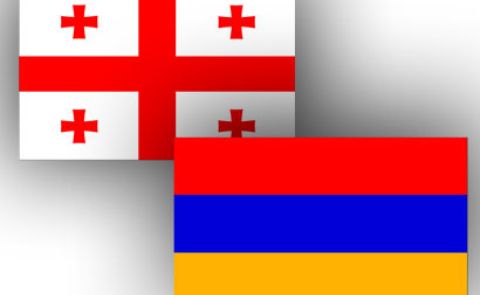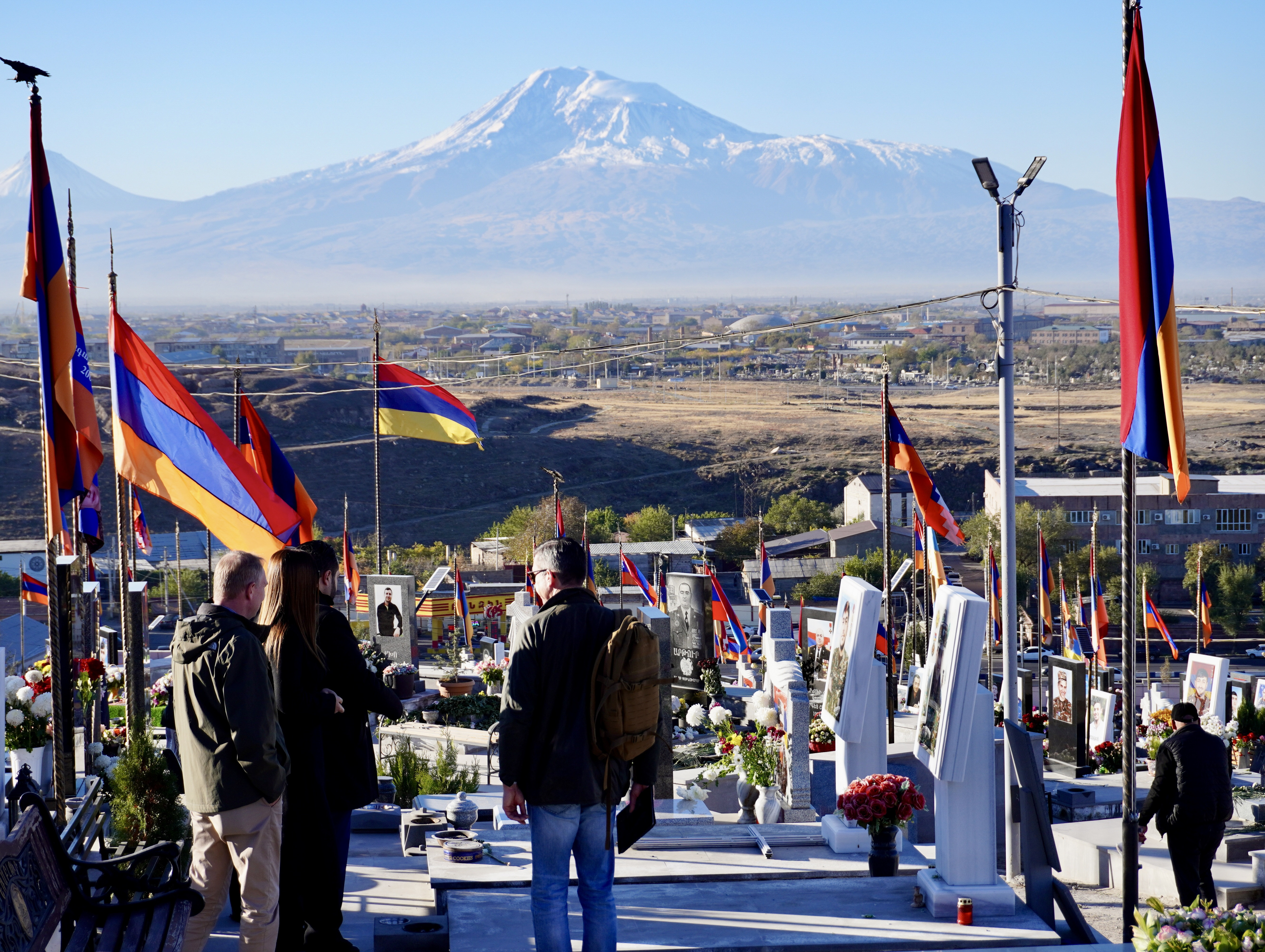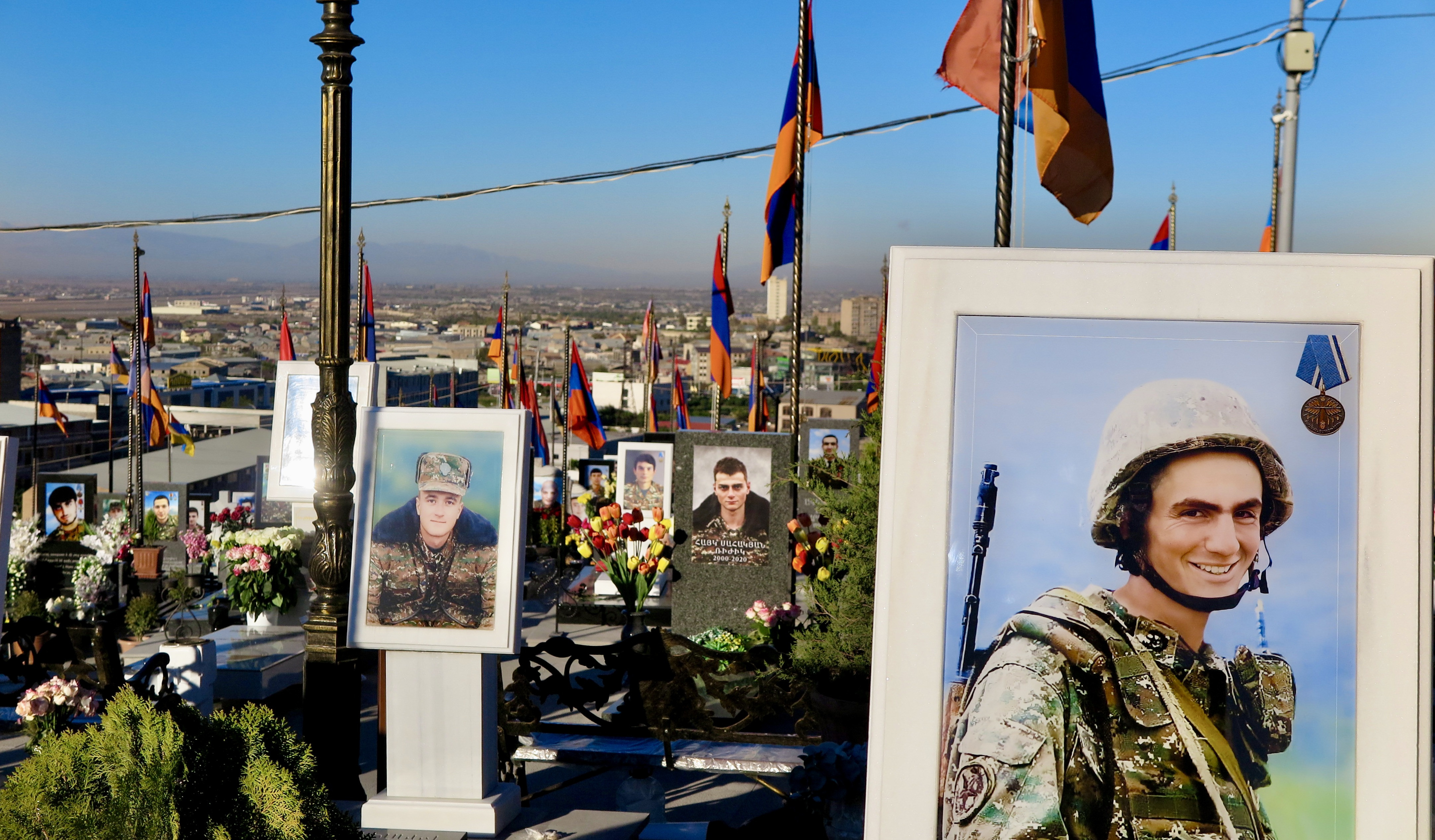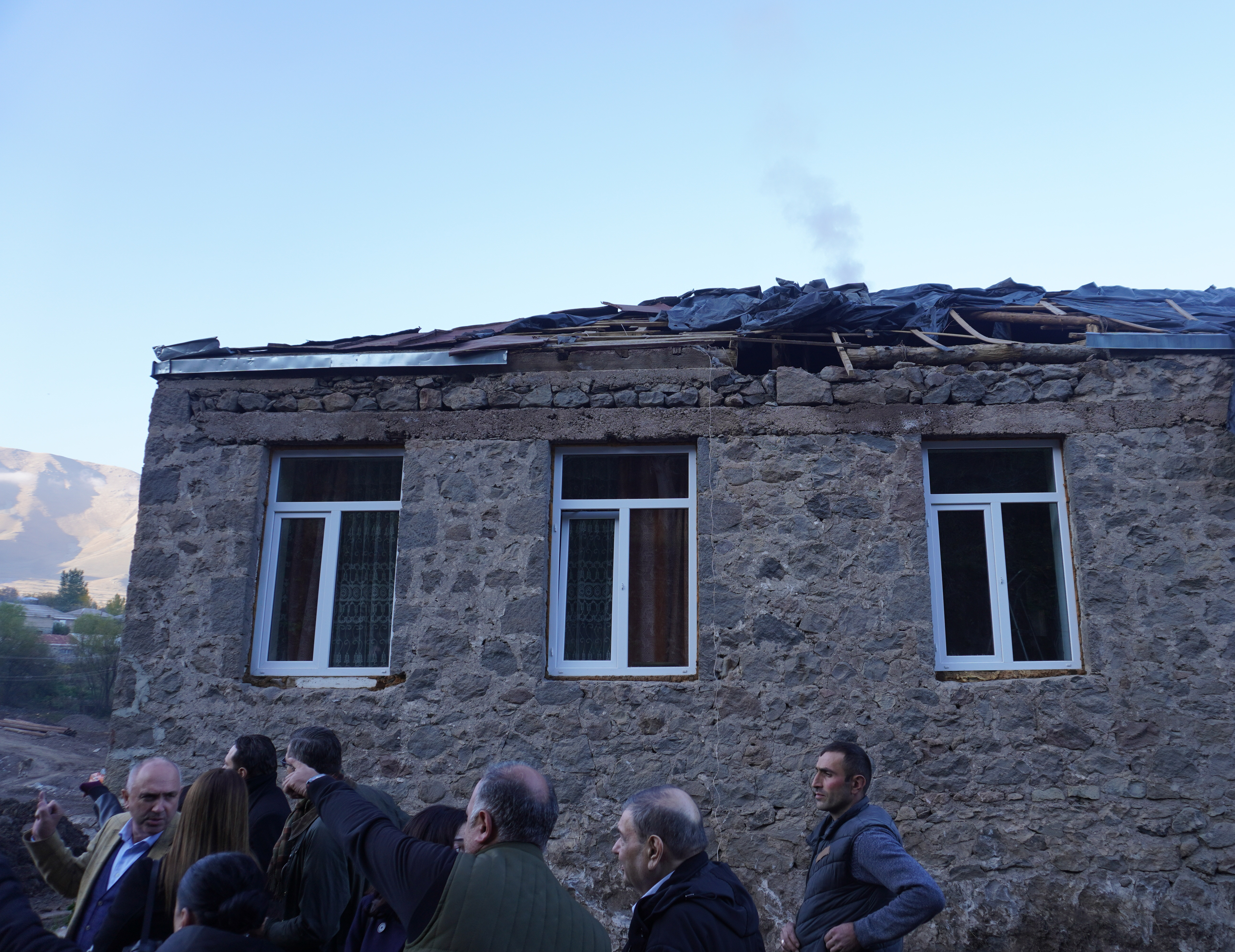
One Day with EU Monitoring Capacity Mission in Armenia: Exclusive Report for Caucasus Watch
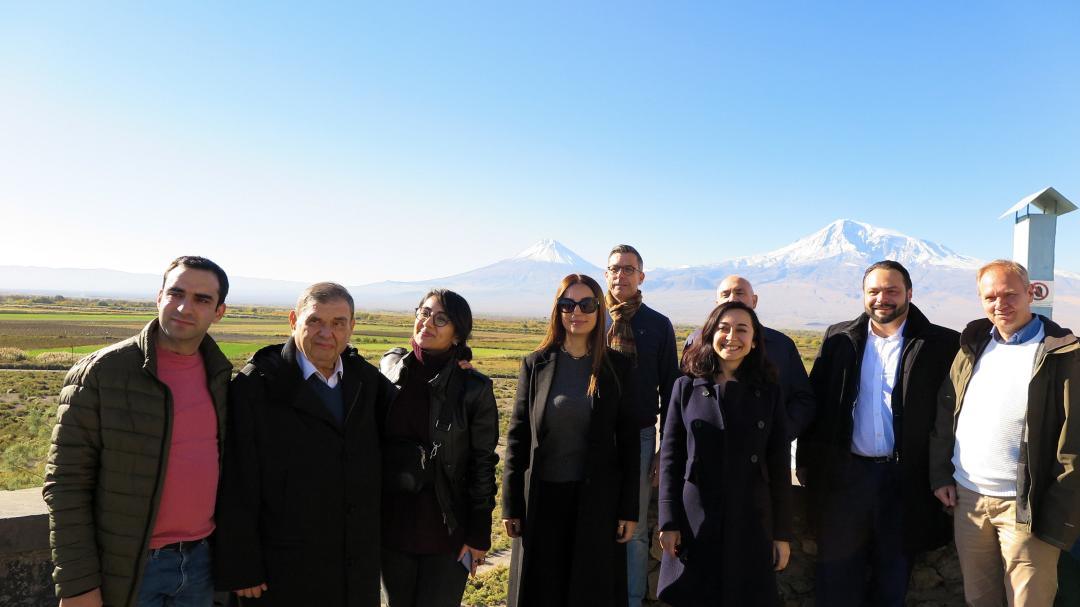
"The Azerbaijani military forces encroached into the sovereign territory of the Republic of Armenia. And this is unacceptable, totally unacceptable" - Arush Arushanian (Mayor of Goris).
The EU Monitoring Capacity Mission is being deployed on the Armenian side of the internationally recognised border between Armenia and Azerbaijan. The mission is a direct response to the attacks launched by Azerbaijan into Armenian territory on September 13-14, 2022.
The main aim of the mission, deployed by EUMM Georgia, is to support confidence-building between the two countries by monitoring their adherence to the ceasefire. Starting from October 20, the EU mission has mobilised 40 monitoring experts for two months.
“This is another proof of the EU’s full commitment to contributing to the ultimate goal of achieving sustainable peace in the South Caucasus,” said High Representative for Foreign Affairs and Security Policy, Josep Borrell.
In the past, Russia’s Kremlin, a traditional security partner of Armenia, has attempted to maintain peace between Armenia and Azerbaijan and are both parts of the Collective Security Treaty Organization (CSTO), a military alliance consisting of six post-Soviet states. However, Armenia’s current military ties with Russia can best be described as being caught between a rock and a hard place. Despite this, Russia declared a shaky ceasefire between Armenia and Azerbaijan after the September unrest. However, this relationship has been strained due to Russia’s ongoing war with Ukraine.
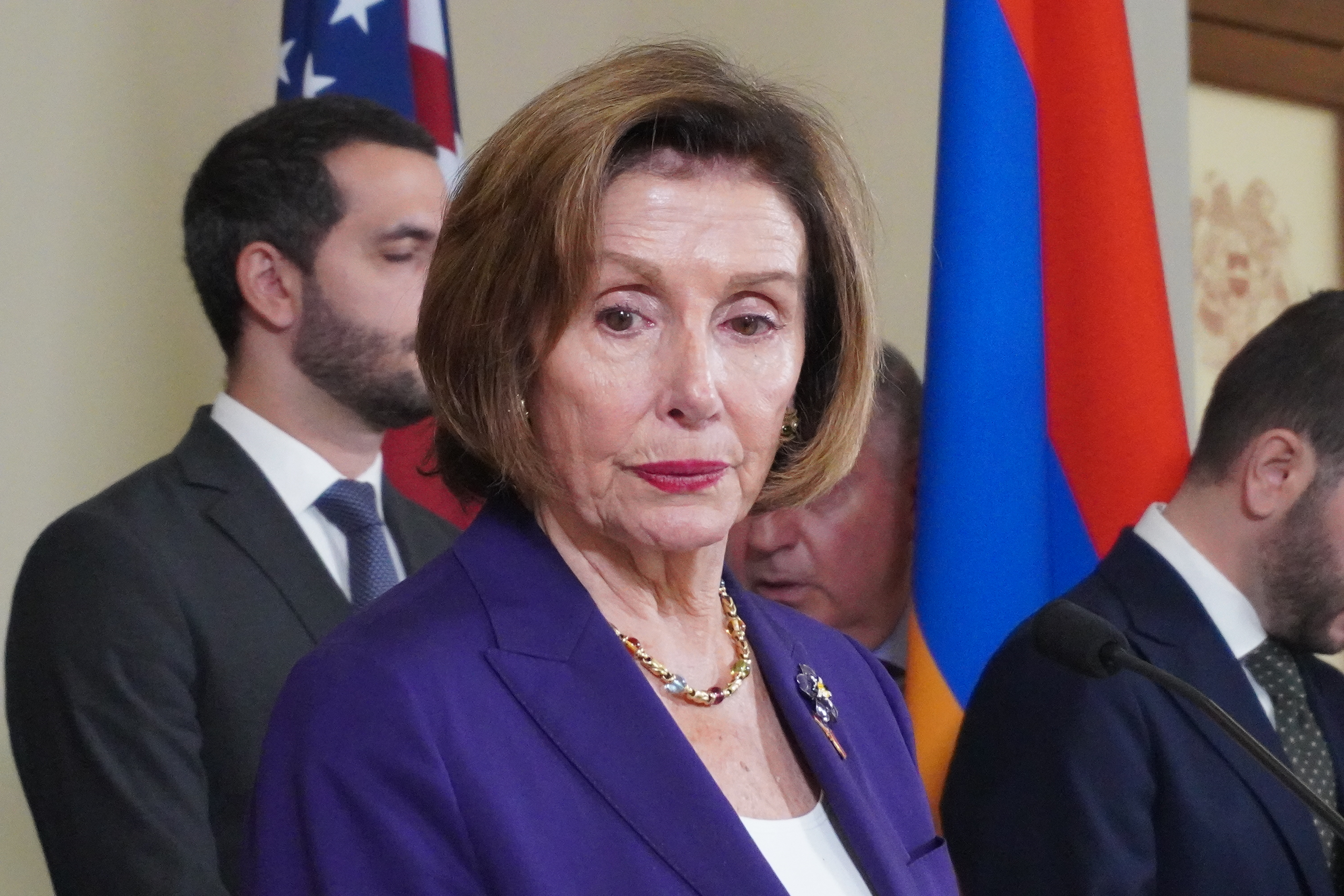
Nancy Pelosi speaking at the National Assembly in Yerevan. Photo: Hugh Bohane
In this regard, the EU mission comes not long after the October 6 EU Political Community Prague summit, which could signal a renewed opportunity for cooperation between the EU and the South Caucasus.
Nevertheless, according to many Armenians, the demand for Azerbaijan’s oil and gas reserves among the EU Member States further complicates the overall situation. “We are losing credibility,” says Italian Member of the EU Parliament (MEP) Fabio Massimo Castaldo bitterly. “The EU has proved it is using double standards when it comes to Azerbaijan's violation of international law,” he told us, referring to the recent clashes, which are a “crime against the Armenian people,” he said.
Additionally, last August, the President of the European Commission, Ursula von der Leyen and the President of Azerbaijan, Ilham Aliyev, officially signed a memorandum to double Azeri gas imports into Europe until the year 2027.The US is another major international force showing renewed interest in the region. The historic diplomatic visit to Armenia on September 17 by US House of Representatives Speaker Nancy Pelosi may have signalled a new era of US support for Armenia. Her address at the National Assembly in Yerevan condemned the “illegal and deadly attacks by Azerbaijan” on Armenian soil.
The EU Mission in Armenia
Foreign media embeds with the EU mission have been limited due to the sensitive nature of this assignment and the low profile the representatives are keeping. Only two foreign journalists were invited to join the November 2 EU mission that consisted of a one-day tour of Yerevan and a road trip to the Syunik region.
The deployed team consisted of three MEPs, from three different countries (Germany, Italy, and the Netherlands), along with European Armenian Federation for Justice and Democracy (EAFJD) President Kaspar Karampetian, Armenian members of parliament and an Armenian television crew.
The November 2 Itinerary
EU parliamentarians walking in Yerablour Military Cemetery. Photo: Hugh Bohane
Young soldier’s graves at Yerablour Military Cemetery. Photo: Leonardo Delfanti
At 8:30 am, the group arrived at Yerevan’s Yerablour Military Cemetery. Situated on a hilltop, with Ararat Mountain in view, lies a graveyard for Armenian soldiers killed in the Nagorno- Karabakh wars, adorned by flowers and national flags. The ages of many of the soldiers at the year of their deaths were just 18,19 and 20 years old. Disturbingly, we saw fresh graves being dug to bury soldiers from last September’s Azerbaijan offensive.
We later visited Khor Virap Monastery, built on a hillside closer to Azerbaijan and Turkey's borders. Here, Saint Gregory the Illuminator, the Apostolic Church’s paladin, was condemned to die of hardship in a well; later pardoned, he converted Armenia to Christianity, first among the nations of the world.
Some of the casual group conversations across the table at lunch included how European politicians and foreign journalists are often susceptible to “sponsored PR tours” of Azerbaijan by the Aliyev government and how in some incidents, even direct cash bribes have been exchanged in return for pandering to Azerbaijani interests.
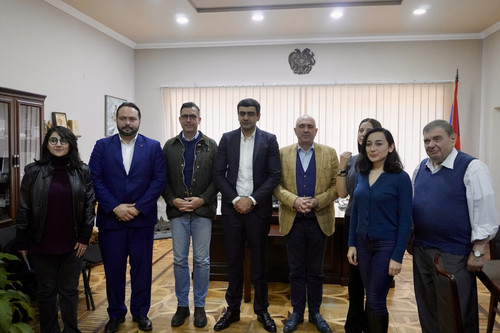
EU Parliamentarians meeting the mayor of Goris in his office. Photo: Hugh Bohane
Meeting the mayor of Goris
After lunch, we headed to meet the mayor of Goris, Arush Arushanian, in the centre of town. “Losing lands has not only a big financial impact on us but also a psychological one because we are losing our ancestral land and our identity,” he said.
Whilst meeting the mayor, the EU members all conveyed their deep concerns over Azerbaijani aggression and a willingness to foster deeper ties between their countries. Support for Artsakh (Armenian name for Nagorno-Karabakh - edit.) and the progress of international Armenian friendship groups were also discussed. It was also emphasised that there is a need to protect the territorial integrity of Armenia and all Armenians living in Europe.
“It was important for us to be here on the ground to meet you; it is not simply just to strengthen the ties among us, as parliamentarians, and with the Armenian authorities but also to see with our own eyes what happened and the terrible attacks on Armenian homes and how the Armenian community have been suffering by the aggression perpetrated by the troops of Azerbaijan,” said MEP Fabio Massimo Castaldo. German MEP Lars Patrick Berg was the last parliamentarian to speak at the meeting, concluding, “it is very important that we listen and learn from you [the Mayor] to hear what is going on… to make people and the [EU] Parliament aware about these incidents and raise a voice for you fighting against evil,” he said.
Visiting a shelled village in Goris
The EU delegation visiting a shelled home in Goris. Photo: Hugh Bohane
At a small village outside Goris, we visited a local family’s home that had their roof destroyed by Azerbaijani shelling on September 13. The Armenian government provided 4,000 euros for the family to repair the top; however, that wasn’t enough to fix it.
The local family expressed gratitude for the EU visit, which gave them a sense of reassurance, although there is still more to be done by all sides.
“Azerbaijani soldiers never stop advancing on our sovereign territory," said Armenian MP Anna Gregoryan. “I am 31 years old, and I have never seen Azeri soldiers in my life. Now, when you go to my hometown, you can obviously see all of them standing there.”
In a shaky voice, MP Gregoryan said that the main road from Goris to the southern city of Kapan, which continues to the Iranian border, is now under the authority of Azerbaijan. After the road was put under Azerbaijani control, MP Gregoryan said, “we had to build a new road which is not as good as the previous one.” “After the 2020 Nagorno Karabakh War, where the whole international community decided to stay silent, Azerbaijan took this silence as an incentive to advance by taking land step by step,” she said.
Dinner with the team
One of the main topics discussed over dinner was the war in Ukraine and how Armenia is being internationally neglected. Under international law, Azerbaijan's invasion of Armenia’s sovereign territory is not all that different to Russia’s invasion of Ukraine.
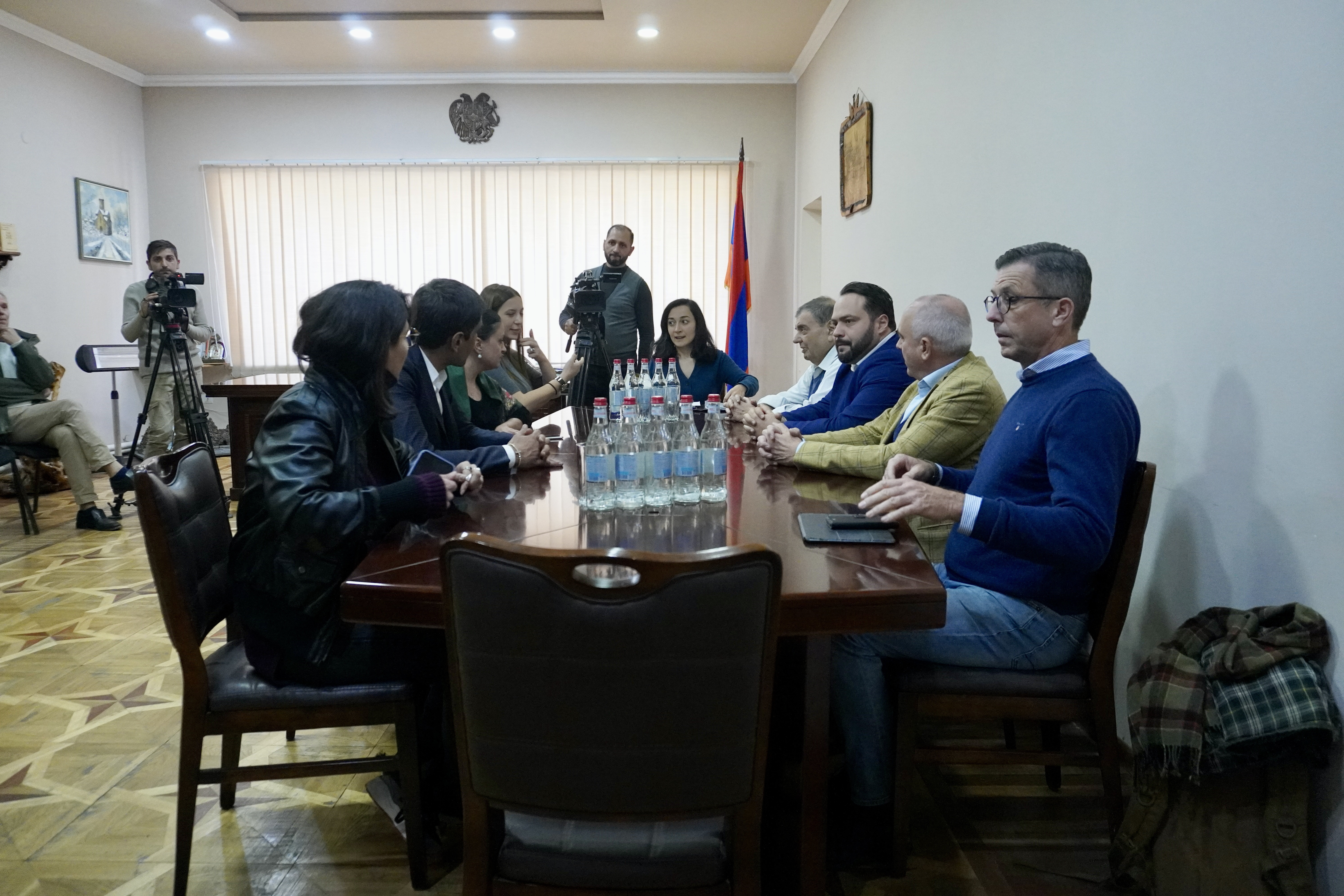
Armenian MPs and the EU members at the table with the Mayor of Goris. Photo: Hugh Bohane
We spoke to MEP Lars Patrick Berg a few days later about his thoughts on how the deployment was being conducted.
“First of all, I have to say it was well-organized. Having the opportunity to talk about the people of Artsakh and the atrocities committed on their cultural heritage is a message we have to take back to the EU Parliament,” said MEP Berg.
We also quizzed him about whether he had any theories on why Armenia isn’t getting the same media attention that Ukraine is experiencing lately.
“Well, Probably because there are so many crises in the world right now, and the Ukrainian war is dominating the world’s attention. Another reason is Azerbaijan has more natural financial resources and can put forward its story more easily.”
MEP Berg said, “These recent peace talks need to be supported, and they could offer more stability. Of course, it's a difficult road. But easing up on trade relations and travel, for example, could be the first steps.”
See Also


3+3 Initiative as a New Order in the South Caucasus

Economic Cooperation Between Armenia and Georgia: Potential and Challenges Ahead

Russia and Occupied Abkhazia: A New Type of Relations

Georgia and US: From Close Ties to Caution
